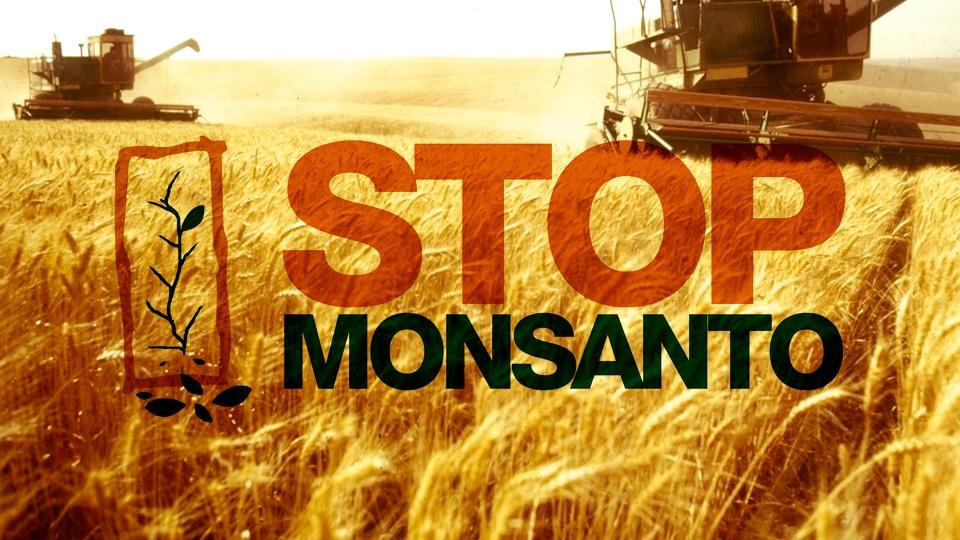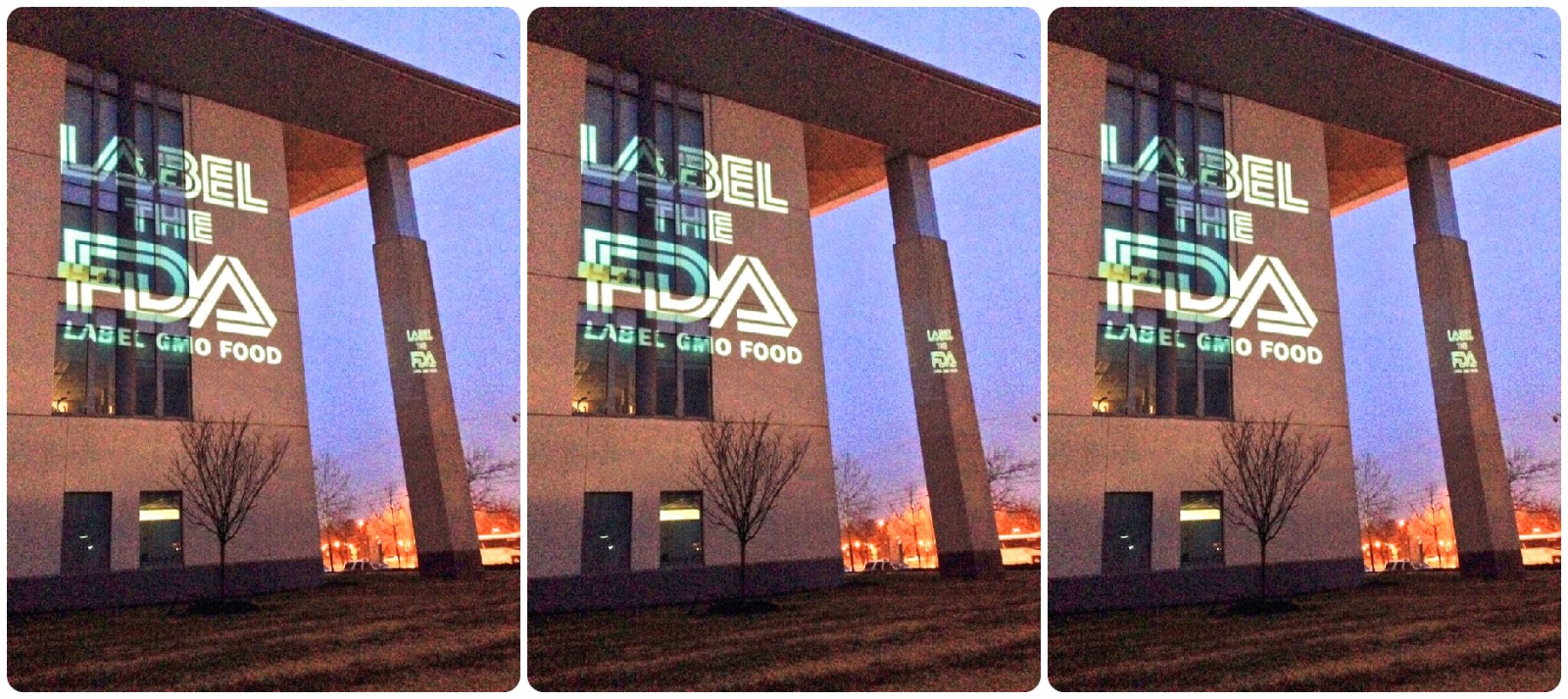Since Food Democracy Now! launched its Monsanto divestment campaign several weeks ago, the phone lines at Fidelity, Vanguard and State Street have been ringing off the hook.
Thousands of Americans concerned about what they're eating – and what their investments are funding in the way of poisonous GMOs – are now calling their financial advisors and discovering that they inadvertently own shares of Monsanto’s stock that were hiding in their mutual funds, 401K or pension funds.
As a result, many have taken immediate action and asked their advisors to sell those funds and invest in more socially and environmentally responsible ones. Monsanto claims that its patented GMOs engineered to withstand its weedkiller Roundup – and which then find their way into over 70% of food in our grocery stores – are perfectly safe.
So why are they fighting GMO labeling in the U.S.? If you have a retirement fund, 401K or mutual funds, you could be profiting from Monsanto’s poison – and helping fund its expansion and its financial hold over the political process.
That's why Food Democracy Now! and others are saying: It's time to put your money where your mouth is and divest, once and for all, from Monsanto
Take the Monsanto Stock Plunge
On Friday, May 9, flash mob protests will happen at Fidelity Investment offices in cities across the U.S. to let them know Americans are serious about dumping Monsanto’s toxic assets.
Fidelity alone owns more than $3.2 billion in Monsanto stock. In total, Fidelity manages more than $4.6 trillion in assets and more than 20 million customers in the U.S. If you're one of them, your voice matters.
Find out about the Monsanto Stock Plunge and Divest Monsanto events here. Launch an event in your town or city and join partners like Natural News, Organic Consumers Association, Cornucopia, Green America, GMO Inside, Millions Against Monsanto, Babes Against Biotech, Food Babe, Hawaii GMO Justice Coalition, Institute for Responsible Technology, GMO Free USA and March Against Monsanto.
The following individual Divest Monsanto actions are happening in Boston, New York City, Philadelphia, Washington, DC Chicago San Francisco and Los Angeles
Obviously not everyone has investments in mutual funds or a retirement fund – but most of us have friends or family that do. If you want to change our food supply, remember: Friends don’t let friends invest in Monsanto. Spread the word about the divestment campaign. If your company has a 401K plan or pension fund, call your advisor and tell them you want to only invest in funds without Monsanto.
Additionally, coming up on May 24, millions of activists around the world will once again March Against Monsanto, calling for the permanent boycott of genetically modified organisms (GMOs) and other harmful agro-chemicals.
Currently, marches are scheduled to occur on six continents in 52 countries with events in over 400 cities. In the U.S., solidarity marches are slated to occur in 47 states. See the comprehensive list of marches here.
Tami Monroe Canal, founder of March Against Monsanto (MAM), was inspired to start the movement to protect her two daughters. “Monsanto’s predatory business and corporate agricultural practices threatens their generation’s health, fertility and longevity. MAM supports a sustainable food production system. We must act now to stop GMOs and harmful pesticides.”
GMOs are not adequately monitored to ensure public safety. Long term, independent, peer reviewed studies were not conducted before GMOs were introduced for human or animal consumption. In the USA, the revolving door between Monsanto employees, government positions, and regulatory authorities has led to key Monsanto figures occupying positions of power at the FDA and EPA.
Monsanto has spent hundreds of millions of dollars to obstruct all labeling attempts; they also suppress any research containing results not in their favor. The scientifically established health risks include, but are not limited to: organ damage, sterility, infant mortality, birth defects, auto-immune conditions, allergies and increased cancer risks.
GMOs have been partially banned by Austria, Bulgaria, Germany, Greece, Hungary, Ireland, Japan, Luxembourg, Madeira, New Zealand, Peru, South America, Russia, France, Switzerland and Costa Rico, and are currently labelled in 62 countries. Despite this, factory farm animals throughout the world are still fed GMOs.
Roberta Gogos, organizer for Athens, Greece, addressed the importance of the marches in austerity-impacted Europe. “Monsanto is working very hard to overturn EU regulation on obligatory labeling where enforcement is already lax. Greece is in a precarious position right now, and Greece's farmers are positioned to follow the same perilous fate as farmers in countries such as Colombia and Mexico.”
Josh Castro, organizer for Quito, Ecuador’s march observes, “Ecuador is such a beautiful place, with the richest biodiversity in the world. We will not allow this Garden of Eden to be compromised by the destructive practices of multinational corporations like Monsanto. Biotechnology is not the solution to world hunger. Agroecology is. Monsanto's harmful practices are causing soil infertility, mono-cropping, loss of biodiversity, habitat destruction, and contributing to beehive collapse. GMO crops cross pollinate with traditional crops, risking peasant farmers' livelihood."
In India, more than 250,000 farmers have committed suicide after Monsanto's Bt cotton seeds did not perform as promised. Farmers, left in desperate poverty, are opting to free their families of debt by drinking Monsanto pesticide, thereby ending their lives. Many farmers in other countries are also stripped of their livelihood as a result of false promises, seed patenting and meticulous legal action on the part of Monsanto and other big-ag interests. In many parts of Africa, farmers and their communities are left to choose between starving or eating GMOs.
An “Open Letter from World Scientists to All Governments Concerning Genetically Modified Organisms (GMOs),”, signed by 828 scientists from 84 countries, detailed concern regarding GMOs coupled with a call for immediate 5 year suspension of GMO crops in order to conduct “a comprehensive public enquiry of agriculture and food security for all.”
Think 320,000 likes is enough for a Facebook page? Go to March Against Monsanto on FB and add your voice – then get ready to hit the streets.

3 WAYS TO SHOW YOUR SUPPORT
- Log in to post comments












